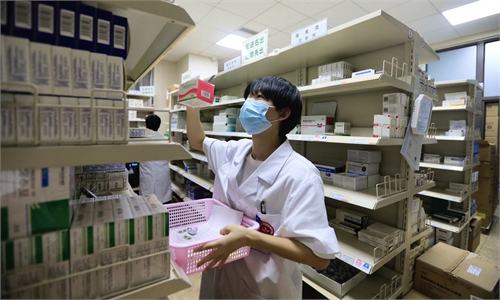
Chinese Foreign Ministry spokesperson Mao Ning
Starting from April 29, inbound travelers may choose to take antigen tests within 48 hours prior to boarding and do not need to have a nucleic acid test, and airlines will no longer check pre-departure testing results, the Chinese Foreign Ministry announced on Tuesday.
According to foreign ministry spokesperson Mao Ning, China has refined its pre-departure testing requirements to further facilitate cross-border travel and to ensure safe and orderly travel.
Since China announced the downgrading of the management of COVID-19 from Class A to Class B from January 8, quarantine requirements were removed for people entering the country. Inbound travelers were still required to present negative nucleic acid test results acquired within 48 hours before departure.
Mao said China will continue to optimize its policies in light of the evolving epidemic situation to ensure the safe, healthy and orderly travel between China and other countries.
Experts said the adjustment was made at the right time after China assessed the situation and will definitely have a positive effect on people-to-people exchanges in trade, business and other sectors, especially for the rebounding cross-border travel during the upcoming May Day holidays.
According to China's leading travel platform Qunar.com, outbound flight bookings from April 29 to May 3 have returned to 45 percent of that in the same period in 2019. Travel data from Chinese e-commerce platform, the Taobao-backed OTA Fliggy, shows that outbound travel bookings have reached more than 200 percent compared with the Spring Festival holidays this January.
China's Hong Kong Special Administrative Region, Thailand, Japan, South Korea and Australia are among the most popular destinations, while Egypt, the UAE, Italy and France are also seeing rapid growth.
Li Tongzeng, chief physician in the respiratory and infectious diseases department at Beijing You'an Hospital, told the Global Times on Tuesday that the risks of removing the COVID-19 nucleic acid test requirement is manageable as the epidemic is at low prevalence in most parts of the world, and China has enough medical resources and a higher vaccination rate to deal with the possible increase of local infections caused by imported cases.
Li said that over 80 percent of people infected with COVID-19 now are those who did not contract the virus before and most people who are infected a second time will have relatively milder symptoms, brushing aside concerns of a second wave coming in China.

